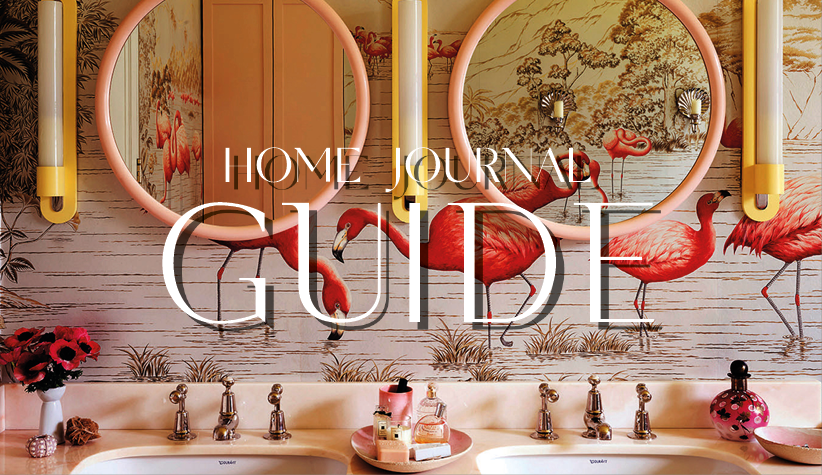This new addition to Xinjiang's hospitality scene demonstrates a true understanding of its cultural context.
Nestled at the base of the majestic Tianshan Mountains, along the banks of the picturesque Ili River, the Huamei Resort Yining InterContinental and EVEN Hotel Complex blends the architectural wisdom of traditional Ili residences with cutting-edge design.
Developed by China Green Development Group (CGDG) and designed by the global architecture firm HKS, this ambitious project spans over 65,000 square metres, encompassing an InterContinental Hotel, an EVEN Hotel, and a multi-functional convention centre.
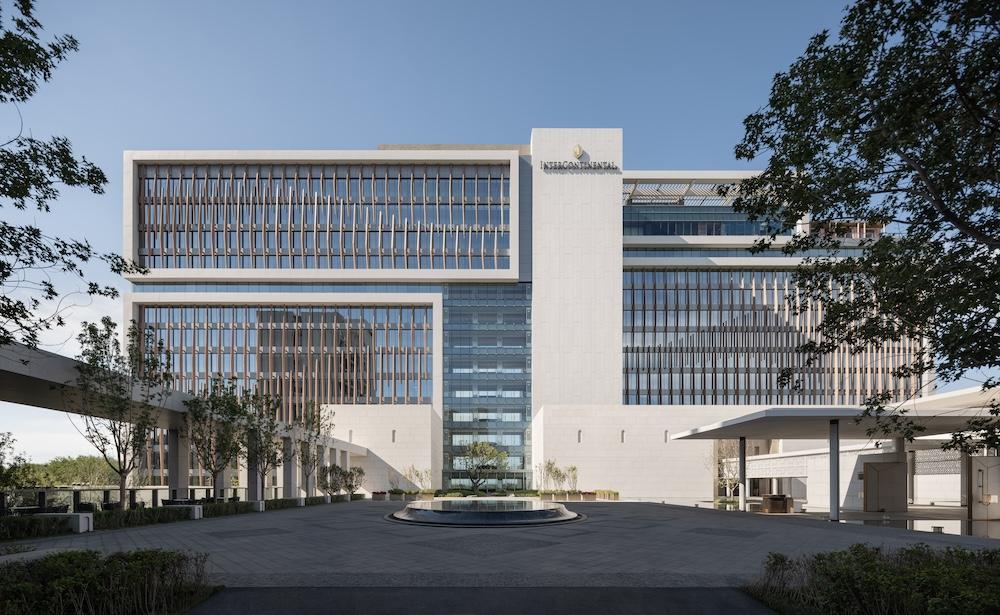
Yining (伊寧縣), China's largest western border city and a vital node on the northern Silk Road, is home to 40 distinct ethnic groups. For HKS architects, led by Bin Cao, partner and managing director of HKS East Asia, was to create a design that captures this rich cultural diversity while delivering world-class hospitality.
Embracing the site's unique triangular shape and significant elevation changes, the team have crafted a remarkable solution – the "River Valley Courtyard". This innovative planning concept draws from the traditional Ili courtyard residences, reinterpreting their interconnected spatial hierarchies for the modern hotel context.
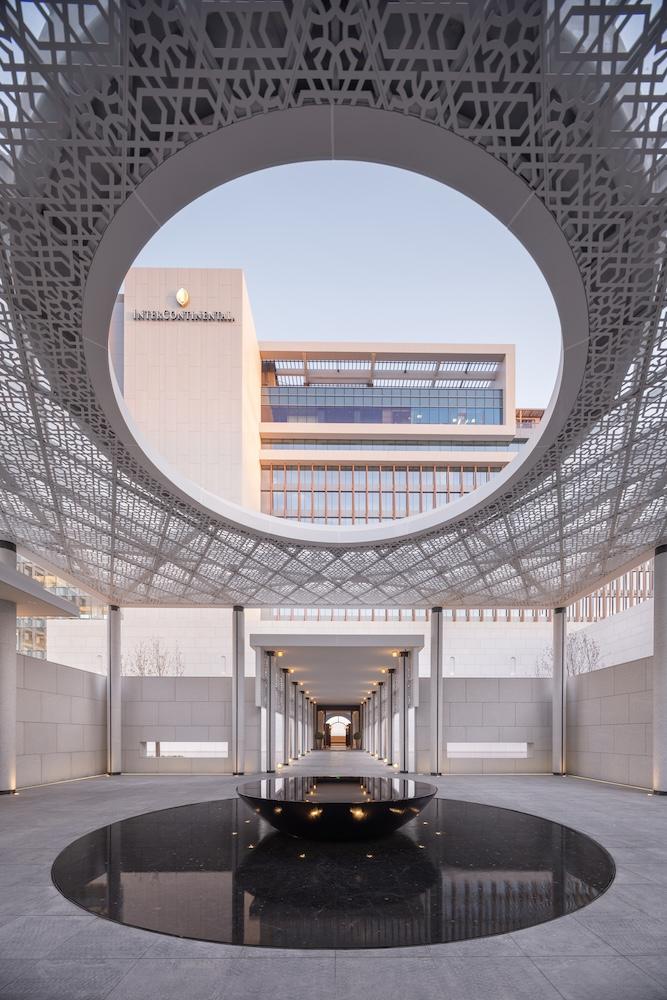
The resort's layout features a dual circulation system. An outer axis guides guests through tree-shaded arrival areas and a drop-off courtyard, leading them to corridors with breathtaking mountain vistas. Meanwhile, an inner axis is anchored by a Silk Road-inspired cultural corridor, connecting the public spaces and evoking the region's storied history.
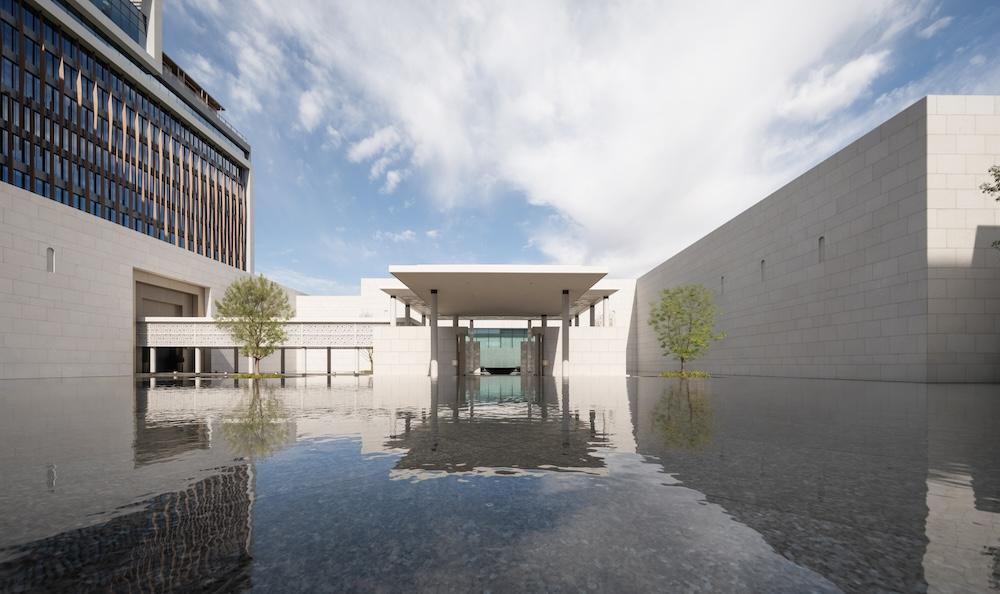
Traditional Ili architectural elements have been integrated throughout. The InterContinental Hotel's north façade, for instance, features metallic louvers that mimic the flowing currents of the Ili River, transforming the building into a luminous beacon at night. Guestrooms facing south open up to the river valley, their clean lines and transparent volumes blurring the boundaries between indoor and outdoor realms.
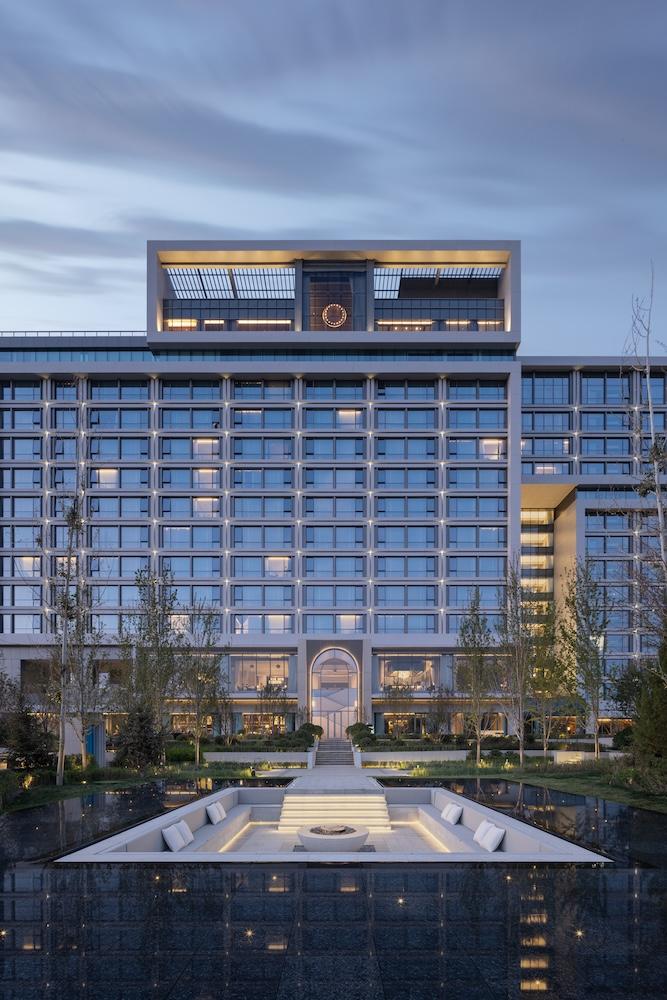
South-facing guest rooms open toward the river valley, framed by clean rectangular lines and transparent volumes that blur boundaries between indoor and outdoor spaces. The design draws the outdoors inward, creating an experience where cultural heritage, modern comfort and the surrounding valley's rhythms converge.
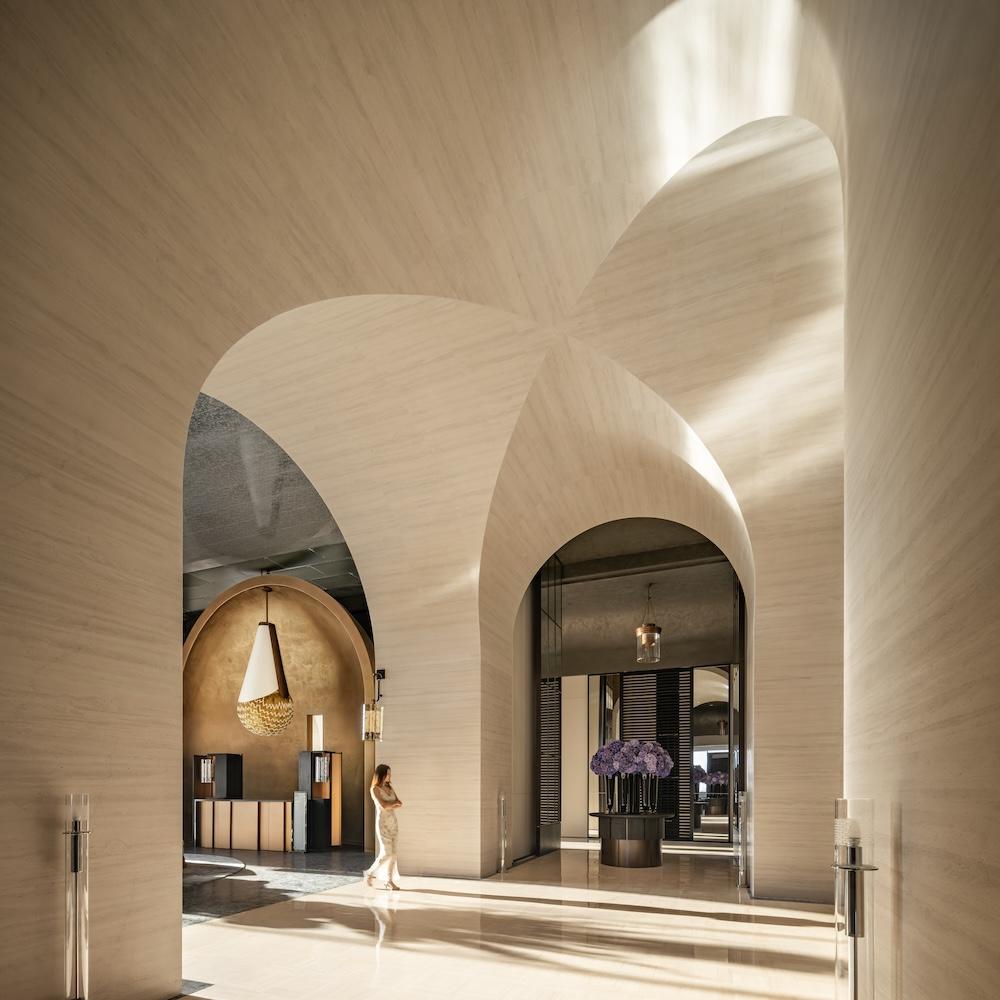
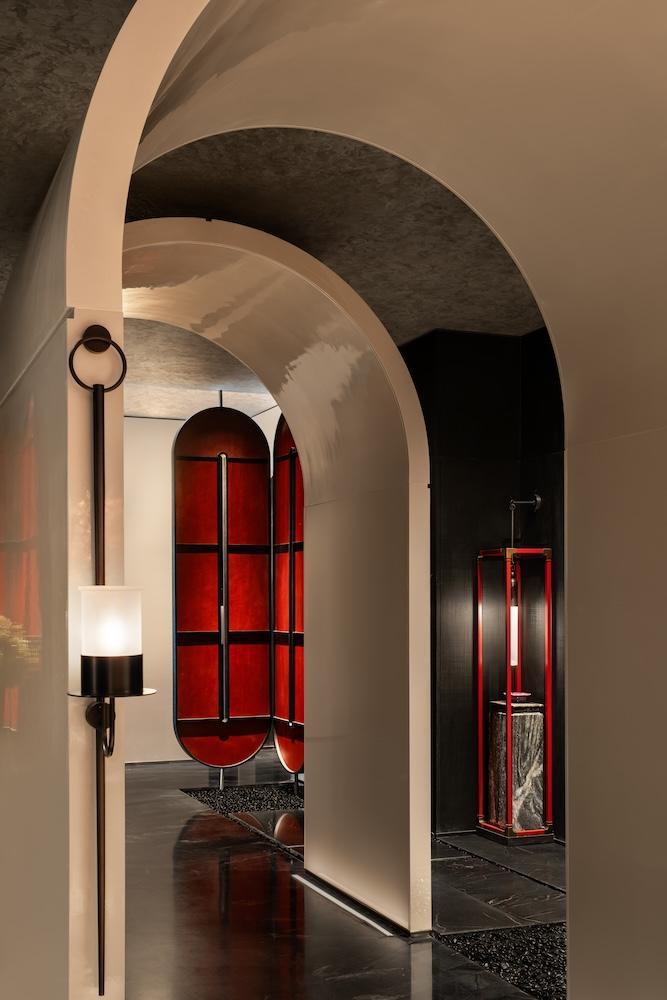
"Architectural timelessness stems from understanding the context, mastering the present, and reimagining the future," says Cao. "This hotel cluster is more than a building – it’s a spiritual emblem for Yining’s 40 ethnic groups. Through contemporary design, we have woven multicultural life into every space, crafting experiences that are both memorable and meaningful."






